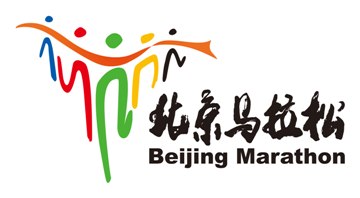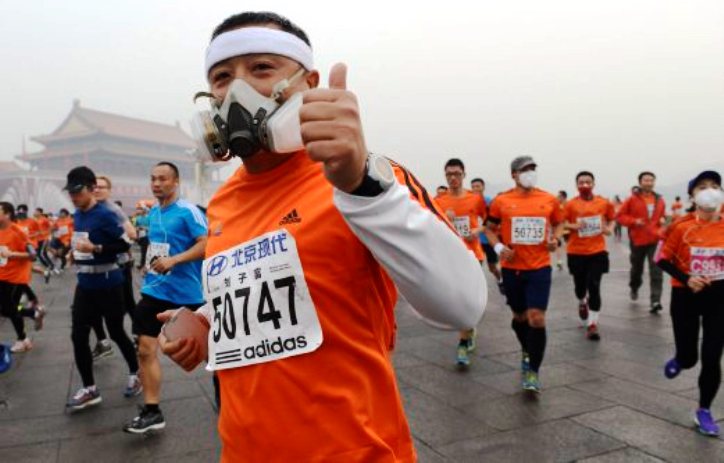 Thousands of runners battled thick smog at the Beijing Marathon on Sunday, with some athletes donning masks as air pollution soared to 16 times the maximum recommended level.
Thousands of runners battled thick smog at the Beijing Marathon on Sunday, with some athletes donning masks as air pollution soared to 16 times the maximum recommended level.
Organisers rejected calls to postpone the race despite the soupy white haze over the Chinese capital, but said they had laid on extra medical staff to treat injuries among the more than 25,000 registered runners.
The level of small pollutant particles known as PM2.5, which can embed themselves deep in the lungs, reached more than 400 micrograms per cubic metre in parts of Beijing as the racers lined up.
The World Health Organization’s recommended daily maximum average exposure is 25. The US embassy in Beijing described the air on Sunday as “hazardous”.
“When I looked at the state of the mask after 10 kilometres, I decided enough was enough,” said British runner Chas Pope, 39, after dropping out of the race.
“It felt pretty ridiculous given we’re meant to be running for health and fitness.”
Many top long-distance athletes stayed away from the race, which was won by Ethiopia’s Girmay Birhanu Gebru in two hours, 10 minutes and 42 seconds. His compatriot Fatuma Sado Dergo was the fastest woman with a time of 2:30:03.
At the finish line, athletes tried not to let worries about air quality take the shine off their pride in their performance.
“I’m used to the pollution,” said local runner Liu Fan, who ran 32 kilometres of the 42-kilometre (26-mile) race. His wife handed him a bunch of flowers, describing conditions as “terrible.”
One entrant sported a large green gas mask, while others opted for more modest white face coverings.
Chinese actor Yuan Hong pulled out of the race, writing on his verified microblog account: “The air quality is too poor! Competitor A1659 has decided to quit.”
Organisers said in a microblog post that it would have been “very difficult” to postpone the race “as nearly half of the athletes are from other countries and regions outside Beijing.”
China has for years been hit by heavy air pollution, caused by enormous use of coal to generate electricity to power a booming economy, and by more vehicles on the roads.
Public discontent about the environment has grown, leading the government to declare a “war on pollution” and vow to cut coal use in some areas.
But poor air quality has persisted as officials continue to focus on economic growth, and lax enforcement of environmental regulations remains rife.
Elsewhere in Beijing on Sunday, French foreign minister Laurent Fabius laid the cornerstone of a new international school that is hoping to attract pupils with a specially-designed system to filter the city’s air.
The existing French high school in Beijing is frequently forced to cancel sports classes and outdoor activities because of the dreadful air quality, which has led some parents to withdraw their children from the school.
Despite lacking such advanced facilities, marathon runners who began at Beijing’s Tiananmen Square were stoical after finishing outside the “Bird’s Nest” Olympic stadium.
“There was smog this morning,” said Wang Jun, 52, who completed the race dressed as a leopard and said he had completed nine marathons this year.
“I reckon the air will get better this afternoon,” he added, with a swish of his tail. – Agence France-Presse

































